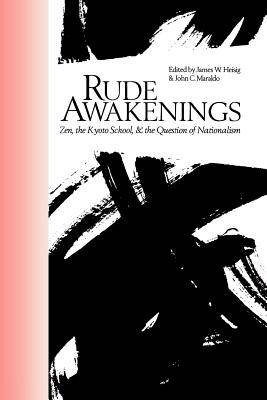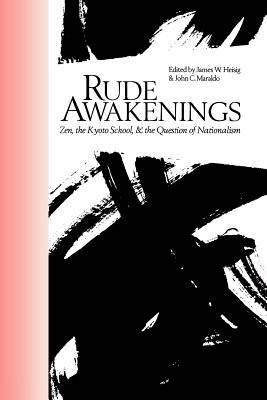
- Retrait gratuit dans votre magasin Club
- 7.000.000 titres dans notre catalogue
- Payer en toute sécurité
- Toujours un magasin près de chez vous
- Retrait gratuit dans votre magasin Club
- 7.000.0000 titres dans notre catalogue
- Payer en toute sécurité
- Toujours un magasin près de chez vous
Rude Awakenings
Zen, the Kyoto School and the Question of Nationalism
48,95 €
+ 97 points
Description
Can Zen tell us whether particular wars are right or wrong? What role did D. T. Suzuki and other Zen figures play in the Japanese nationalism that fueled World War II? What are we to make of nationalistic elements in the thought of Nishida Kitaro, Tanabe Hajime, Nishitani Keiji, and other philosophers of the Kyoto School? What connection was there between the Japanese project of overcoming the modernity of the West and the militarism of its 15-year war in Asia?
In a collection of carefully documented essays, 15 Japanese and Western scholars take up these and other questions about the political responsibility of Japanese Buddhist intellectuals. This well-indexed and meticulously edited volume offers a variety of critical perspectives and a wealth of information for those interested in prewar and wartime history, Zen, Japanese philosophy, and the problem of nationalism today.Spécifications
Parties prenantes
- Editeur:
Contenu
- Nombre de pages :
- 390
- Langue:
- Anglais
- Collection :
- Tome:
- n° 10
Caractéristiques
- EAN:
- 9780824817466
- Date de parution :
- 01-06-95
- Format:
- Livre broché
- Format numérique:
- Trade paperback (VS)
- Dimensions :
- 153 mm x 236 mm
- Poids :
- 562 g

Les avis
Nous publions uniquement les avis qui respectent les conditions requises. Consultez nos conditions pour les avis.





